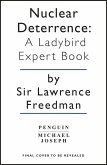Against the backdrop of major geopolitical developments, including Russia's invasion of Ukraine and intensifying great-power competition in the Indo-Pacific, this book undertakes a comprehensive reassessment of the United States' first Cold War strategy. In examining the machinations and dynamics of the Cold War era, it offers a nuanced understanding of today's security challenges and the underlying continuities that may inform contemporary security strategies.
While there are marked differences between the Cold War era and the geopolitics of the twenty-first century, there are also certain equivalences-increasing bipolarity, deepening polemics, sharpening distinctions between autocracies and democracies-that are very much driving developments. It is no longer questionable that the United States and China, tacit allies during the first half of the last Cold War, are engaged in their own new cold war: Chinese President Xi Jinping has proclaimed it, and a unique bipartisan consensus in the United States recognizes the contest. What, then, might previous challenges suggest about the current situation?
The core objective here is to demonstrate how the greatest ever unfought war-the Soviet-American Cold War-as well as other preceding struggles, might expand our understanding and foster resilience in adapting to the evolving Sino-American rivalry. When applied with a sophisticated grasp of contemporary dynamics, the lessons of the past can guide effective policy-making, enhance strategic foresight, and advance stability amid the many uncertainties of the present century.
While there are marked differences between the Cold War era and the geopolitics of the twenty-first century, there are also certain equivalences-increasing bipolarity, deepening polemics, sharpening distinctions between autocracies and democracies-that are very much driving developments. It is no longer questionable that the United States and China, tacit allies during the first half of the last Cold War, are engaged in their own new cold war: Chinese President Xi Jinping has proclaimed it, and a unique bipartisan consensus in the United States recognizes the contest. What, then, might previous challenges suggest about the current situation?
The core objective here is to demonstrate how the greatest ever unfought war-the Soviet-American Cold War-as well as other preceding struggles, might expand our understanding and foster resilience in adapting to the evolving Sino-American rivalry. When applied with a sophisticated grasp of contemporary dynamics, the lessons of the past can guide effective policy-making, enhance strategic foresight, and advance stability amid the many uncertainties of the present century.
Dieser Download kann aus rechtlichen Gründen nur mit Rechnungsadresse in A, D ausgeliefert werden.









